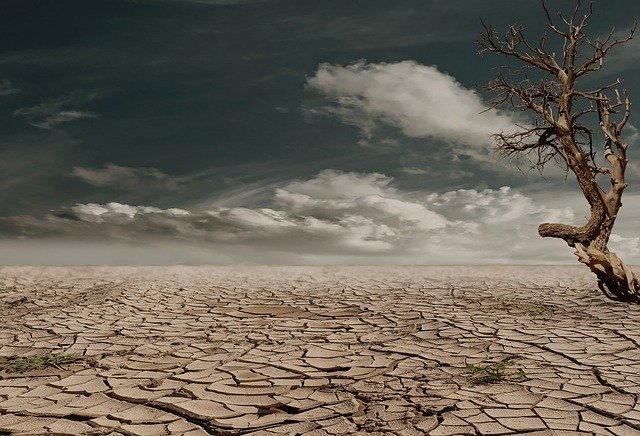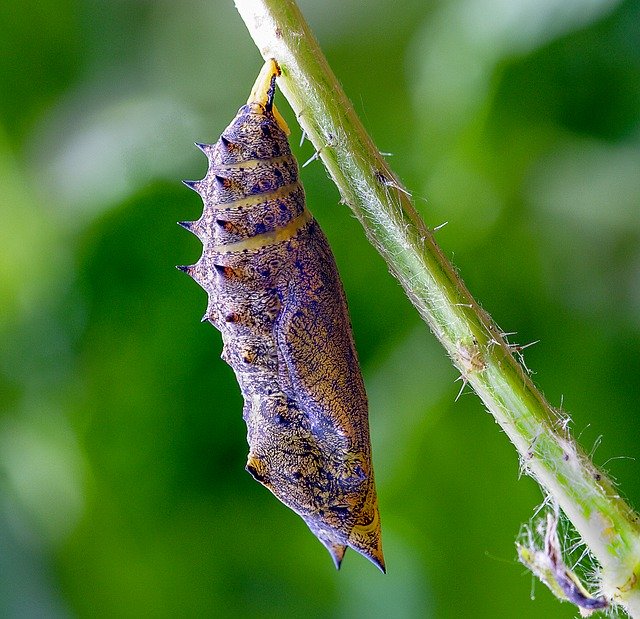
“April is the cruelest month,” says T.S. Elliot in “The Waste Land.”
When I look around, I see scars. I see the remnants of humanity’s attempt to survive a pandemic that arrived suddenly and with little warning. I see columns regarding rituals for the dead and articles detailing how humans can continue to craft a life during times that are very different from the winter depths of January and early February.
We are scarred by the realization that connection, the ability to physically touch persons who are not living in our homes, has been swept away from us. How many do we know who have not hugged another human being in weeks or months due to the quarantine?
We are scarred mentally and psychologically from the burden of trying to hold ourselves together for our families, our children, our co-workers, our friends, our lovers, our partners, and ourselves.
When someone asks, “how are you?”, what that person may really mean is “how are you holding up?” We ask the former because the answer to the latter can be too scary to admit. We are reminded to reach out if it is too much. JAMA Psychiatry addresses fears that a number of factors during the COVID-19 pandemic will increase suicide rates. Many programs, including The Columbia Lighthouse Project, list options for those who need to reach out, such as “The Columbia Protocol.” As a means of staying safe, looking out for our own individual mental health and those of our fellow humans is a positive step that must not be forgotten.
These are not normal times. We may not be “back to normal” for years. No one wants to say it. Just as grief has a progression with no clear timeline, our path through the necessary changes wrought by this pandemic will vary in length.

[Pixabay]
We journey through barren territory, where the future remains unclear. What makes this time different than recent historical events is that the entire planet has shifted from a caterpillar to a chrysalis all at once. Emergence from the chrysalis will take time. In Elliot’s “The Waste Land,” the analogy of impotence can be seen in the current pandemic. Humanity is impotent, as we do not have a cure or vaccine against a viral invader. We feel helpless as we dangle in free fall. We are not able to act in the moment. We feel stress. “The Waste Land” uses transience as a metaphor. In 2020, COVID-19 shatters our state of impermanence.

[Pixabay]
The reader, Madame Sosostris, does not find The Hanged Man, a card often detailed as meaning sacrifice, in “The Burial of the Dead”, the first part of the poem. A century later, one interpretation is that The Hanged Man’s absence from the reading indicates that we are not fully engaged with the necessary sacrifice required at this time. The barren nature of life reflects not only in our nightmares, but in what constitutes reality at this point in 2020. We are compelled to work with each other and to know ourselves on a deeper level.
For some, sudden unemployment, hospitalization, familial illness, or the possibility of death complicates the journey through barren lands that each of us takes at this time. Many who have never needed help to feed their own families, are coming forward now. For others, this time has brought out latent creativity. Musical artists who cannot tour stay relevant by performing online from home. One restaurant owner delivers food curbside in a variety of costumes. Customers are so engaged that they drop off costumes for the owner to wear. Necessity is the mother of invention.
In a world where we have become used to fast paced, get-it-done yesterday, no-time-for-others as a norm, we are scarred when forced to slow down. What choice do we have when the primary interim remedy is to stay apart from each other? Human survival depends on our ability to think of others before ourselves. Just once.
Now, there have been a variety of pandemics throughout human history. Not surprisingly, cholera, plague (bubonic and otherwise), influenza (H1N1), encephalitis, and HIV/AIDS are the most recent outbreaks with the highest numbers of deaths. Cholera leads as a repeat offender with at least ten outbreaks in the past 200 years. We scar from these occurrences, and we grow from them.
Scars are a normal part of the healing process. How often do we recall childhood injuries, such falling off a bike? For small injuries, we are used to simply cleaning the wound, maybe adding some ointment if it’s handy, and covering the area with a bandage to assist in healing.
During this pandemic, time is the balm that assists in allowing us to fight and to heal. For those who have contracted the novel coronavirus or those who have lost friends and loved ones, the random nature of the virus’s attack hurts most because the very act of honoring a loved one’s transition has changed, perhaps forever. We may see our loved ones through a video call, facilitated by a friendly doctor or nurse who tries hard to ensure our loved ones know we are there and that we care must find a substitute for the traditional ritual of sitting by a loved one’s bedside during the final moments of life.
While there are moments of connection lost when loved ones are dying, the COVID-19 pandemic has brought forth an increased desire for home births to avoid going through labor and delivery with one supporter – or worse, no one besides hospital staff. The Centers for Disease Control (CDC) in its guidelines for treatment of pregnant women in hospitals details parameters for possible separation of mother and newborn.
This pandemic highlights the need for humans to connect. We need to touch, feel, hug, see, gather and bear witness to the everyday miracles that so many take for granted. Who could have imagined in early February a new reality of a drive-through wake and funeral, a social-distance wedding at a drive-in, or one where newlyweds drive past the guests? Securing a license and having a wedding via video conference in New York, New Jersey, and California evinces the human willingness to not stand in the way of love. A Coronavirus wedding with an officiant dressed as Elvis behind a glass window might not be the first choice, but in the age of acceptable social distancing, it will have to do.
Like many other religious traditions, some Pagans, Heathens, and polytheists are taking ritual online. Others are choosing to go solitary. Religion grants succor during times of need. Low tech connections between individuals and the gods costs nothing but time and a willingness to connect. For others, there are apps one can download. I miss ritual circle where I can feel the circle energy and being able to celebrate in real time with those who worship as I do. My heart is full and looking forward to the day when it is safe to worship again, even with social distancing.
Many graduating high school and college seniors are mourning the loss of the traditions associated with a full in-person ceremony. Some high school seniors will have celebrities to give an address, while other high schools and colleges have cancelled graduations.
That said, humans are adaptable. The change in how we celebrate, mourn, and acknowledge major events may reflect the very real need to avoid potential illness and gruesome death alone, but that does not mean we cannot embrace the gains that we make during this time. How many people around us have started to grow their own food in gardens? What about the centenarian who wanted to thank the National Health Service for his hip replacement by raising money, ten laps at a time before his 100th birthday? In the darkness, we gain renewed acquaintance with who we are, and hopefully, the best of us. Families are spending more time together. People are taking up new hobbies. All of the things we wished we “only had time for…” are now possible. We can no longer avoid ourselves with that excuse.
For those who are working from home, below-the-waist attire matters less than the backdrop seen in a Zoom shot. YouTube, Instagram, and TikTok provide entertainment for the new solo environment. For parents who need a break from reading during pandemic overload, Dr. Seuss is having a resurgence with The Lorax, One Fish, Two Fish, Red Fish, Blue Fish, and the classic Green Eggs and Ham. Lists of how to distract ourselves and our families during quarantine demonstrate the human need to do something. The ever-topical Saturday Night Live highlights Zoom etiquette of what to do or not to do in a professional Zoom meeting. Other types of entertainment include worldwide concerts, and adding a twist to more traditional in-person games, such as bingo and puzzles. Who knew that puzzle manufacturers should be classified as an essential business?
Humans are animals, but at times it seems we forget the other animals on the planet. During this time, they have needs as well. One Japanese aquarium requests humans video chat with eels during a festival May 3-5 so that they do not forget us. Some zoos are having animals visit with each other. Fostering and adopting animals is increasing during this time of forced human confinement. We need our furry companions as much as they need us. This change in routine, however, has brought some discord to some households because human are spending too much time at home.

[Pixabay]
In my home tradition, for the sabbat at the start of May, we celebrate love, flowers, and fertility in all its forms. Scars may not seem like a sign of fertility, but they represent areas where healing and new growth are in process. We are not emerging from this pandemic as the same individuals as we were two months ago. We may be celebrating this sabbat alone. Some locations in the world are still under some form of quarantine, as the virus winds its way through various populations. Know that as we journey through the waste land of 2020, and perhaps 2021, we are not alone. The oft-referenced #alonetogether is a reminder to remember that there is a purpose in the actions we are taking. Love binds us just as deeply as scars do.
How do we make it through this time of desolation? We choose to connect. We continue to make videos to share with the world, we find laughter through everyday antics of our loved ones and pets, we help our elderly or immunocompromised neighbors, and we remember that the world is about more than just “us” – the individual. We honor the front-line warriors in any way we can. We bear our scars that will eventually crack open the chrysalis. We are stronger together when we remember why we are willing to journey through the waste land with the rest of humanity.
The Wild Hunt always welcomes guest submissions. Please send pitches to eric@wildhunt.org.
The views and opinions expressed by our diverse panel of columnists and guest writers represent the many diverging perspectives held within the global Pagan, Heathen, and polytheist communities, but do not necessarily reflect the views of The Wild Hunt Inc. or its management.
The Wild Hunt is not responsible for links to external content.
To join a conversation on this post:
Visit our The Wild Hunt subreddit! Point your favorite browser to https://www.reddit.com/r/The_Wild_Hunt_News/, then click “JOIN”. Make sure to click the bell, too, to be notified of new articles posted to our subreddit.
Pingback: Column: Scars at Beltane – social